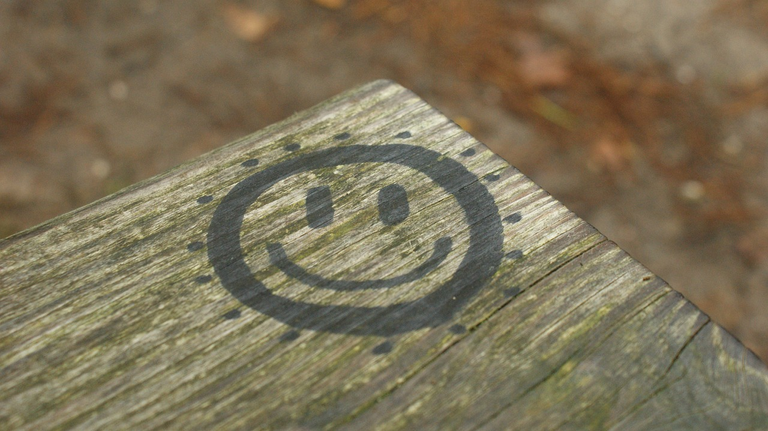The Intriguing History of Emojis: Introduction
At first, this was supposed to be a short post about emojis, but as my research went on, it became a series of twists and turns, psychological effects, and even a story that included trials, life sentences, drugs, and weapons.
The Story of Esperanto
In 1887, Polish scientist L.L Zamenhof presented a new invention to the world, he made up a language. Language is a product of being that has evolved over time since the Old Ages. For example, European languages descend from Latin. The Language product includes thousands of expressions and dialects. After many years, that language finds a set of rules, grammar, and format that we identify it, belong to it, and distinguish it from other languages. It's a product that evolves without planning.
However, Zamenhof broke that rule and invented a language of his own. An entire language he presented in his book Fundemento de Esperanto in 1905, a book that included the fundamentals, basic principles, and structure of the Esperanto artificial language.
Despite his medical speciality, Zamenhof knew over 7 languages given his life in the Russian Empire which had languages like Russian, Polish, Yiddish, Geman, and others. Those people hated each other, however, Zamenhof realized that the difference in the language between people was the reason for such misunderstanding and hatred which sometimes led to wars. That is why he decided to invent a language that didn't belong to one people and there would be no dispute of its origin.
The hope was that we'd all learn the language and unite with it as a universal language. Hence, people wouldn't start hateful arguments. We'd all belong to same identity and culture and wars would end. The language actually spread with thousands starting to speak it, so much so that the condominium of Moresnet, which existed on the borders between Belgium and Germany, had its entire population adopting and speaking Esperanto to prove its neutrality.
That was exactly what Zamenhof wanted from his invention. Of course, the idea worked and the world hasn't seen a war since. Obviously, not. Soon after, the First World War began and ensured peace was a hard-to-achieve goal, even harder if you're depending on language to do that alone. Moresnet wasn't saved by the language but was actually raided by the Germans before it was divided after the war between France and Belgium.
By the Second World War, Hitler actually warned of the Esperanto language in his book Mien Kampf. Hitler claimed that it was a Jewish conspiracy because Zamenhof was Jewish. Indeed, this led to the targeting of people speaking the language to the point where some of Zamenhof's kids were killed in the Holocaust. With that, the ending of the language was marked.
The story of the Esperanto language ended in tragedy.
Universal Languages
There are some languages that we could consider universal. Does that mean Zamenhof's dream was achieved? Clearly, not. In fact, these languages spread but it wasn't done for peaceful purposes like Esperanto. They spread because they were the languages of strong empires that conquered the world for ages. For example, the British Empire, the French Empire.
English is spoken by 1.5 billion people. That led to the question of whether could there be a possibility of a universal language be born without wars or obligations from its native speakers like what happened with the United Kingdom, France, Portugal, and Spain. Could there be one language that all humans from around the world use, no matter their native language?
Let's talk about a language used by 212 countries with a total of 2.9 billion people. It doesn't require rules, format, or grammar, it requires common sense. That language is emojis.
Is emojis a language? Every day, a billion emojis are used on Facebook, and 50% of Instagram comments are emojis, hearts, smiles, and laughs. Among 3.2 billion internet users, 93% use emojis. The remaining 7% are just charismatic bikers in leather jackets who can unhook a woman's bra just by looking or just people who don't engage, they laugh by writing "HHHHHHHH" without even an A.
But emojis aren't a language, they're pictures, right? Well, that's what we will dive into in the next part of this series.
Sources
Esperanto: The Wonderful Horrible History of the Universal Language
Esperanto
The invention of emojis: A brief history
Have you ever heard of the "Emoji Commission"? | DW Documentary
Word of the Year 2015
The smiley isn’t from the US but from baroque Moravia :)
World’s Oldest Smiley Face May Decorate a Hittite Jug
The staying power of the smiley face
A HISTORY OF EMOJIS
History of the Emoji
Meet Rayouf Alhumedhi, The Saudi Teen Behind The Hijab Emoji
Emoticon language is 'shaping the brain'
Mehrabian’s 7-38-55 Communication Model: It’s More Than Words
Why the White House Is Using Emoji
Obama tells Americans to thank Japan for emojis and anime
Unicode
The WIRED Guide to Emoji
The History of the Emoji
The History of Emoticons and Emojis
Smiley Lore :-)
A Brief History of Emoji
Why Emojis Don't Say Enough | Anna Lomanowska | TEDxUofT
Emojis aren’t debasing language – they’re enriching it
From cave drawings to emojis: Communication comes full circle | Marcel Danesi | TEDxToronto
The Silk Road Trial Lawyers Are Fighting Over Emoticons :0
Update: Silk Road case ends in guilty verdict for Ulbricht
Who Is Ross Ulbricht?
Emoticons matter, judge rules in Silk Road trial
Water pistol emoji replaces revolver as Apple enters gun violence debate
How Emojis Have Invaded the Courtroom
Don’t put on a happy face! Are you using the smiley emoji all wrong?


Emoji is so important and easy to reply chat... obviously I really love using emoji
Emoji will be a language, I 'm sure. Zamenhof did best in introducing a language to the world but it depends on people how they follow. A language can't definitely end the conflict in Wars but it can reduce the stress of understanding emotions and feelings.